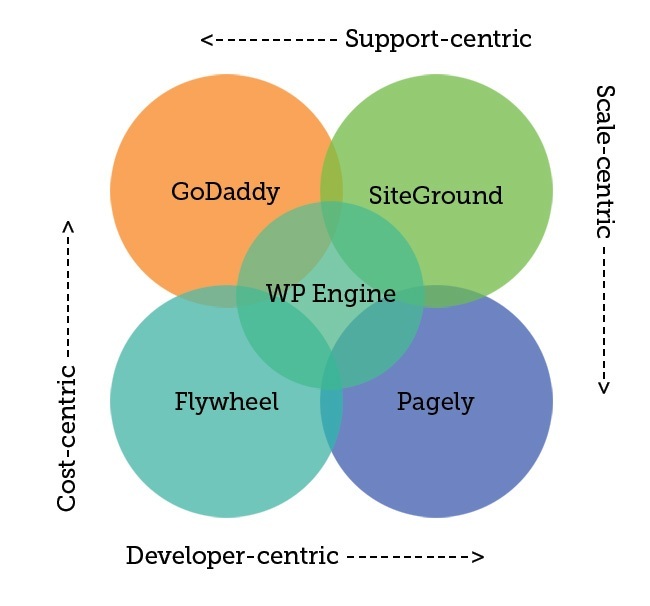Is web hosting still a good business?
The other day I read an article about the end of the web hosting industry. As you might imagine, I disagree with all of it. But I'm not writing this post to debate it because a friend summarized my response in a brilliant tweet.
“Olive Garden announces all locations are closing because people can make spaghetti at home” http://t.co/Y3Q5pV4dTz
— Ryan Don Sullivan (@ryandonsullivan) April 4, 2015
See, the reality is that many technical people – software developers, engineers and more – have found hosting to be pretty easy. So they write articles like this.
But they spend their time working with each other. If they spent more hours with folks like my parents, or neighbors, they might change their perspective.
The world still needs great options for hosting. But more importantly, they need help to know how to choose WordPress hosting from all the available options that are out there.
Where do you get advice on picking the right host?
Another post I read the other day was really great about how certain hosting recommendations were crap.
At the core of the issue are pages like this one – where there are recommended hosting options but it's very unclear how those companies got on that page.
When you read something like this on that page, it makes you wonder.
We’ve dealt with more hosts than you can imagine; in our opinion, the hosts below represent some of the best and brightest of the hosting world.
First, why would the WordPress Foundation have spent tons of time with tons of hosts? And in what capacity? I'm not sure.
And to be clear, that site (WordPress.org) is run by the WordPress Foundation. Not Automattic (which may have much more experience with hosts).
ReviewSignal suggests that they likely got on the page by buying their spot.
I don't think it's that easy – because a) The Foundation hasn't earned or recorded as much money as I think those spots are worth, and b) my understanding is that the head of the Foundation – Matt Mullenweg – makes the decision on his own.
But that doesn't answer the question of how those hosts do actually show up on that list. I know I was once told that Matt doesn't put new companies on the list because he wants to make sure that any name on that page can handle the traffic they will most assuredly get.
But beyond that, the process is opaque.
So maybe that isn't the best page to use to get advice on picking a WordPress hosting company for your site.
Choosing a WordPress Host
I'll be honest, when I read that WordPress.org page on hosting, I cringe a bit. Mostly because I don't think those providers are the best ones out there.
But best is a function of need. So creating a short list seems virtually impossible when two different people will arrive at the page with two very different needs.
Five Recommendations For Five Kinds of Folks
So here are five kinds of people and my recommendations for them.
Are you price-driven but also want support? – In the last two years GoDaddy has really been turning things around and the number of people they have in support, at a call center, waiting to answer your questions directly is impressive. If you want to spend just a couple dollars a month, and yet you also want a direct phone number you can call to get help – then you need to talk to GoDaddy.
Do you want developer features inexpensively? – A couple of years ago only WP Engine was making advanced features available to their customers. Today, SiteGround offers all these features – from staging sites to Git integration to SSL support – at a really inexpensive rate. If that's you, head over to SiteGround right away.
Do you need a non-technical solution? – The number of WordPress hosts keep growing yearly but few of them pursue the “easy to use” solution as strongly as Flywheel has. Their interface, their approach to billing clients, and more – all are designed for people who can configure a WordPress site, but aren't developers. If that's you, you likely need Flywheel.
Are you a developer that wants all the bells and whistles? – A year ago Pagely moved all their hosting infrastructure to Amazon. When they did that they also made a lot of that infrastructure available to their customers – from high availability clusters, to HHVM, to real-time malware monitoring, to automated backups. If you care about high tech and scalability, you want to talk to Pagely.
So far, you've seen four options. The reality is that most people that fall into one of these camps don't fall into another. They're either driven by a high need for support, a high need for savings, a high need for scale, or a high need for ease.
But what if you're not in the extreme? What if you're a business that may end up with more than one site, but needs a bit of everything? You need scale, you need support, you need ease, and you don't want to spend a fortune. Then you want WP Engine.
Here's the way I break it down.

